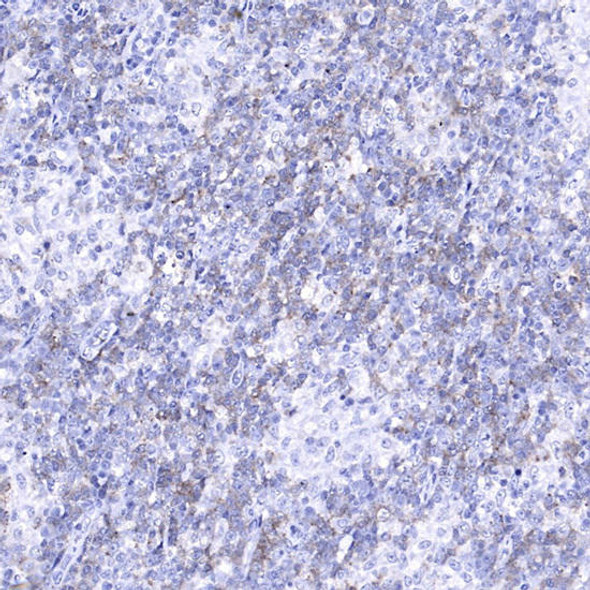Description
| Product Name: | PE Anti-Human CD279/PD-1 Antibody [EH12.2H7] |
| Product Code: | AGEL2723 |
| Clone No: | EH12.2H7 |
| Synonyms: | PDCD1,PD1,Protein PD-1,hPD-1 |
| Reactivity: | Human |
| Host Species: | Mouse |
| Applications: | FCM |
| Isotype: | Mouse IgG1, κ |
| Isotype Control: | PE Mouse IgG1, κ Isotype Control [MOPC-21] (AGEL2550) |
| Conjugation: | PE |
| Form: | Liquid |
| Fluorescent Label: | PE is designed to be excited by the Blue (488 nm), Green (532 nm) and Yellow-Green (561 nm) lasers and detected using an optical filter centered near 575 nm (e.g., a 585/42 nm bandpass filter). |
| Recommended Use: | Each lot of this antibody is quality control tested by flow cytometric analysis. The amount of the reagent is suggested to be used 5 µL of antibody per test (million cells in 100 µL staining volume or per 100 µL of whole blood). Please check your vial before the experiment. Since applications vary, the appropriate dilutions must be determined for individual use. |
| Storage Buffer: | Phosphate buffered solution, pH 7.2, containing 0.09% stabilizer and 1% protein protectant. |
| Swissprot: | Q15116 |
| Stability & Storage: | Keep as concentrated solution. Store at 2-8°C and protected from prolonged exposure to light. Do not freeze. Centrifuge before opening to ensure complete recovery of vial contents. This product is guaranteed up to one year from purchase. |
| Shipping: | Biological ice pack at 4°C |
Programmed cell death 1 (PD-1), also known as CD279, is a 55 kD member of the immunoglobulin superfamily. CD279 contains the immunoreceptor tyrosine-based inhibitory motif (ITIM) in the cytoplasmic region and plays a key role in peripheral tolerance and autoimmune disease. CD279 is expressed predominantly on activated T cells, B cells, and myeloid cells. PD-L1 and PD-L2 are ligands of CD279 (PD-1) and are members of the B7 gene family. Evidence suggests overlapping functions for these two PD-1 ligands and their constitutive expression on some normal tissues and upregulation on activated antigen-presenting cells. Interaction of CD279 ligands results in inhibition of T cell proliferation and cytokine secretion.

![PE Anti-Human CD279/PD-1 Antibody [EH12.2H7] PE Anti-Human CD279/PD-1 Antibody [EH12.2H7]](https://cdn11.bigcommerce.com/s-rd6ounxcu2/images/stencil/608x608/products/87754/91780/pe-anti-human-cd279pd-1-antibody-eh12.2h7__58101__18993.1706549968.jpg?c=1)

